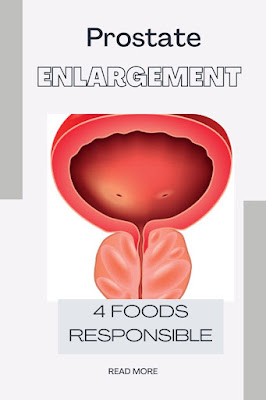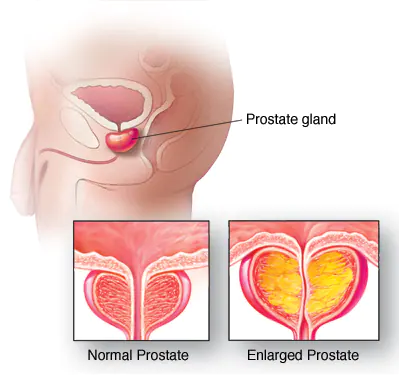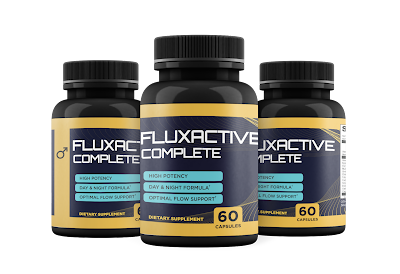Don't be shy! 4 Ways to Treat Benign Prostatic Hypertrophy at Home
Benign Prostatic Hyperplasia icd 10 a Prostate tissue begins to proliferate in most men by the age of fifty.
According to statistics, half of the men will have prostate hypertrophy when they are 50 years old, and nearly 80% will suffer from it when they are 70 years old!
What can I eat to prevent it?
What can you avoid by eating less? Tell you all.
Prostatic Hyperplasia Diet to avoid diuretic, spicy food
Xu Zhaoyu, chief physician of the Department of Urology at Taichung Children's General Hospital, said that there are many causes of prostate hypertrophy,
but some studies have pointed out that groups who love meat or are accustomed to eating high-fat foods, especially obese people, suffer from prostate hypertrophy and prostate Hyperplasia cancer.
The rate of cancer is higher than the general population of the same age.
Develop good eating habits For Prostatic Hyperplasia icd 10
Right eating habits for the prevention of prostate hypertrophy or prostate cancer health care.
According to statistics, 75% of prostate Hyperplasia cancers can be prevented by changing diet and lifestyle.
In addition to maintaining normal work and rest, moderate aerobic exercise, and maintaining ideal body weight, patients with "chronic prostatitis" should avoid eating spicy foods and beverages that have diuretic effects or affect prostate secretion,
such as alcohol, strong tea, sand tea, mustard jasmine, pepper, coffee, cocoa, cola, etc.
Five kinds of food to fight prostate Hypertrophy disease
As for male anti-prostate lesions, which nutrients are needed, and which ingredients are best to eat?
Dr. Xu Zhaoyu emphasized that there are five types of foods that should be consumed more, including:
1. Fiber foods
such as fresh vegetables, fruits, and whole grain foods (such as brown rice, sweet potatoes, oats, yams, etc.).
2. zinc-containing foods
including pumpkin seeds (especially extracted pumpkin seed oil), and others
such as oysters, seafood, eggs, meat, whole grains, and nuts.
3. Foods containing lycopene
these include tomatoes and tomato products, red watermelon, grapefruit, papaya, tomatoes, grapes, cherries, red sweet peppers, guava, etc.
4 selenium-containing foods
selenium-containing food including brewer's yeast powder, garlic, onion, tuna, broccoli, wheat
germ, sesame, seaweed, mushrooms, etc.
5. Foods containing isoflavones and flavonoids
That including soybeans, soybean products, and soy milk, can inhibit the stimulation of male hormones on prostate cells.
Benign Prostatic Hypertrophy icd 10
An enlarged prostate, or benign prostate enlargement, occurs when prostate cells divide and multiply abnormally, causing the organ to increase in size.
An enlarged prostate can lead to depressed mood, and uncomfortable symptoms such as urinary and sexual dysfunction, which can reduce an individual's overall quality of life.
Benignprostatic hyperplasia (BPH) is not linked to cancer and also is not that seriously considered as a health threat.
Here are 4 natural remedies that may help relieve symptoms of benign prostatic hyperplasia (BPH). Home remedies for an enlarged prostate include:
1. Lycopene
Lycopene
is a natural pigment found in fruits and vegetables. One study found that it
may help slow the progression of BPH.
Tomatoes are the richest source of lycopene for most people. Generally, the darker or pinker the fruit or vegetable, the higher the lycopene content. Other sources of lycopene include:
- Papaya
- Pink Grapefruit
- Watermelon
- Guava
- Radish
- Red Bell Pepper
- Apricots
- Red Cabbage
2. Zinc
Chronic zinc deficiency has been shown to increase the likelihood of developing BPH.
Taking zinc supplements or increasing your dietary intake of zinc can help
reduce urinary symptoms associated with an enlarged prostate.
Poultry, and seafood is rich in zinc, and certain seeds and nuts, such as sesame seeds and squash, are also good choices.
3. Green Tea Green
Tea is high in antioxidants called catechins, which have been shown to boost the immune system and potentially slow the progression of prostate cancer.
As a reminder, green tea contains caffeine, which can irritate the bladder and cause constipation, which may worsen BPH symptoms. So a small amount.
4. Pumpkin seeds
Pumpkin seeds contain beta-sitosterol, a compound similar to cholesterol.
Preliminary
research suggests that beta-sitosterol improves urine flow and also reduces the
amount of urine that remains in the bladder after urination.
Research recommends taking 10 grams of pumpkin seed extract daily for BPH symptoms.
Causes of an enlarged prostate?
In the vast majority of cases, BPH is idiopathic, which means it has no known cause.
Doctors and researchers are still trying to figure out why some people's prostate cells divide abnormally.
But most cases of BPH affect men over the age of 40, and most commonly men 50 and older.
Most studies link BPH to hormonal changes, especially those that occur naturally with age.
As men age, their hormone levels change, especially their levels of testosterone, estrogen, and a byproduct of testosterone called dihydrotestosterone (DHT).
Research suggests that these changes in hormone balance may trigger some prostate cells to grow and divide abnormally.
Risks for an enlarged prostate
Potential risk factors for an enlarged prostate include:
- Age
- Diabetes
- Obesity
- Family history
- Heart disease
- Most men of Asian ancestry
have a 50% chance of having BPH by age 60 and by age 85 90% chance.
You can eat more of these foods for enlarged prostate
These foods and nutrients can reduce the triggering of BPH and its related symptoms. Foods that are good for BPH include:
- Fiber-rich foods such as whole grains, beans, legumes, and dark leafy green vegetables;
- Fruits and vegetables rich in antioxidants, usually dark red, yellow, and orange varieties;
- foods rich in zinc, such as eggs, most types of seafood, and nuts;
- Products containing phytoestrogens, such as soy foods, chickpeas, alfalfa, and fava beans;
- Foods are rich in omega-3 fatty acids, including most fish and some nuts and seeds.
People with BPH and those at risk should avoid:
- Caffeine
- Artificial sweeteners
- Alcohol
- Nicotine
- Carbonated beverages
- Starchy, refined foods
- Red meat
Dietary changes may help control or prevent an enlarged prostate and any resulting produced symptoms.
Fluxactive Prostate Dietary Supplement For Prostate Health
To Treat Treat Benign Prostatic Hyperplasia with Fluxactive, it's a 14-in-1 vital prostate wellness formula Designed to offer complete support
Supports the normal functions of the bladder, prostate, and reproductive system
Check Fluxactive For Prostate Health from Official Website
Fluxactive Complete contains a proprietary formula consisting of a group of 14 essential prostate and bladder antioxidants, minerals, vitamins, and herbs.
Each key prostate wellness ingredient was carefully researched and chosen to provide holistic support.
This unique formula is designed to address multiple factors necessary to support lasting prostate health, including optimal flow support.
- 100% BENEFITS AND ZERO COMPROMISES
- WHEN IT COMES TO YOUR HEALTH:
- Pure, clean, and effective
- 100% free of chemical coating and other non-essential fillers.
Fit for everyone
- Non-GMO, vegan and gluten-free.
- 100% Risk-Free Guarantee
- Invest in your health with peace of mind thanks to our ironclad 60 days, 100% money-back guarantee. No hoops, no hassle.
- Fluxactive Complete
- fully packed with powerful and natural ingredients
Lifestyle tips for managing an enlarged prostate
Lifestyle tips that may help manage symptoms of an enlarged prostate include the following:
- Try to urinate at least once before leaving home to avoid leaking urine or other emergencies in public, which can be very stressful and embarrassing.
- Urinate again within a few minutes of the first urination, emptying the bladder as much as possible during the bath.
- Try not to drink liquids within 2 hours of bedtime to avoid excessive urination.
- Drink at least 2 liters of water a day to stay hydrated.
- Try to maintain a healthy weight.
- Exercise as often as possible.
- Try not to drink too much alcohol at once.
- Minimize or avoid stress and reduce the urge to urinate.
- Avoid or limit products that cause dehydration, such as cold medicine and decongestants.
- Use absorbent pads or pants to absorb leakage and reduce dampness and discomfort.
- Do a urethral massage. After urinating, gently press your fingers up from the bottom of the scrotum to squeeze any urine in the urethra to prevent future leakage. (Compiled by Wu Qianqian)
Similar Search Terms For Benign Prostatic Hyperplasia icd 10
- Benign prostatic hypertrophy
- Benign prostatic hypertrophy icd 10
- icd 10 code for Benign prostatic hypertrophy
- Benign prostatic hyperplasia symptoms
- Benign prostatic hyperplasia icd 10
























The effectiveness of these supplements varies, and there is limited scientific evidence to support their use. While some studies have shown that certain ingredients can help to reduce the symptoms of an enlarged prostate, others have found no benefit. In addition, some prostate supplements may interact with other medications, and it is important to talk to your doctor before taking any new supplement.
ReplyDeleteProtoFlow Review : Prostate Supplement
ReplyDeleteProtoFlow Review : Shrink enlarged prostate